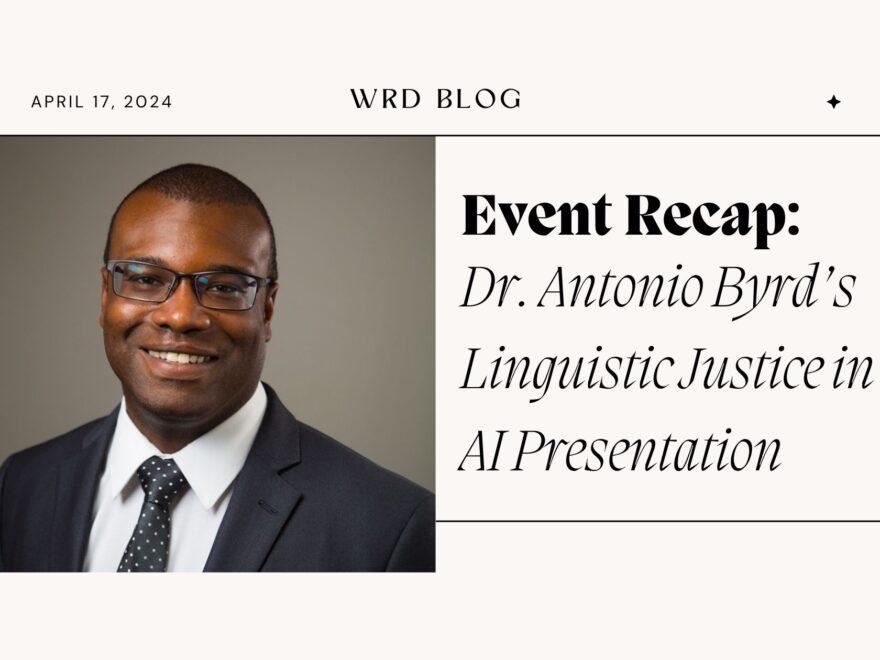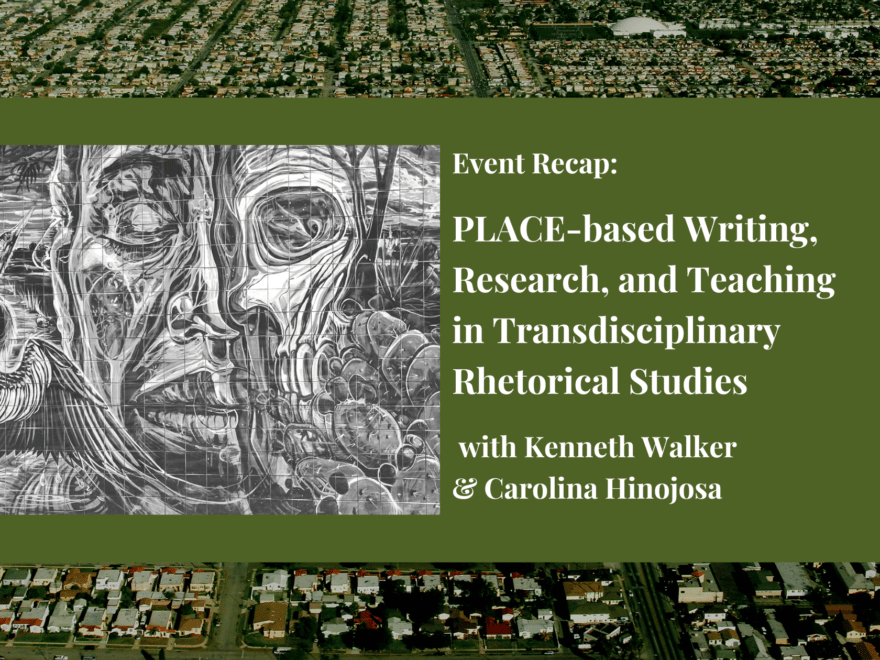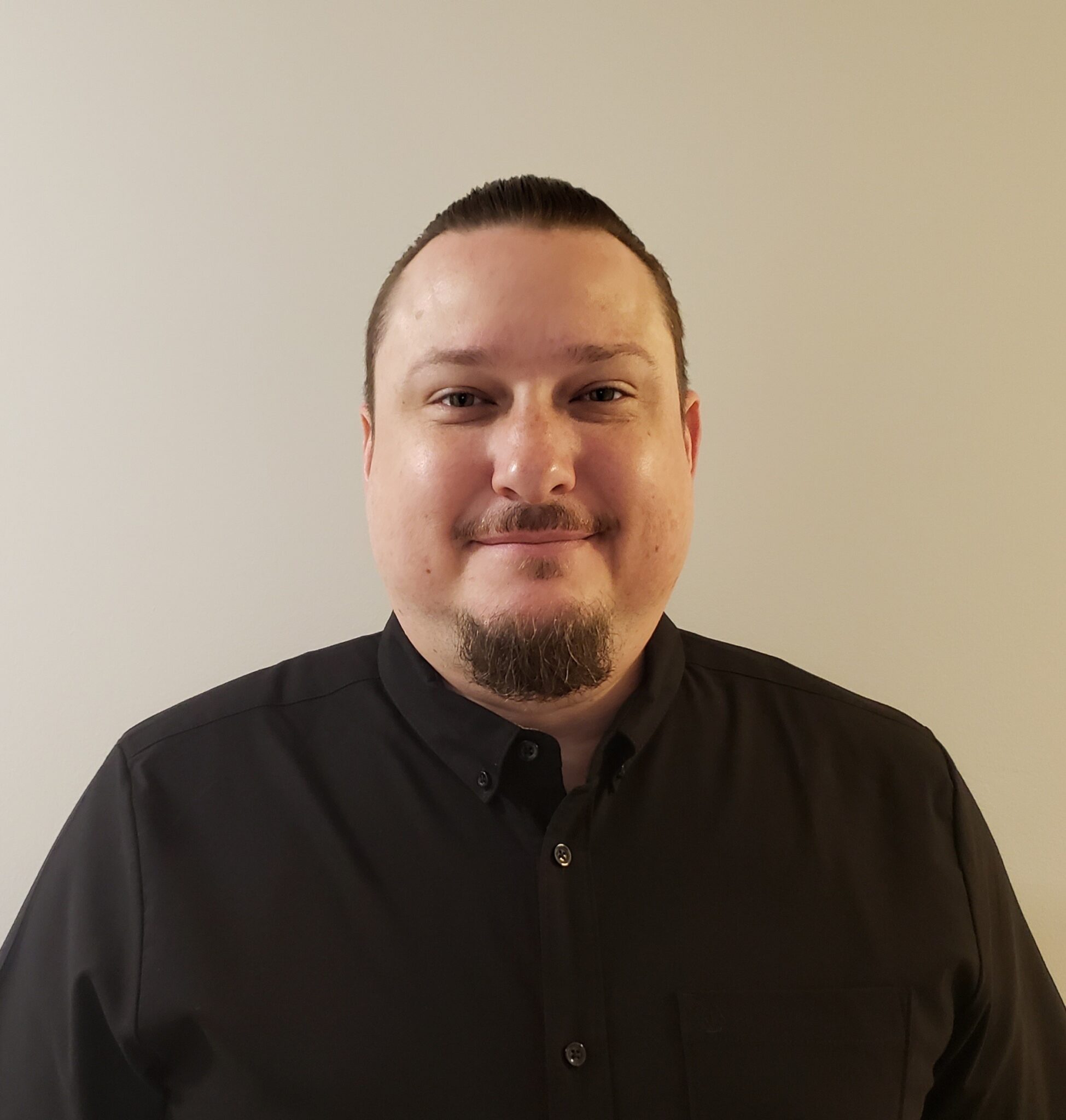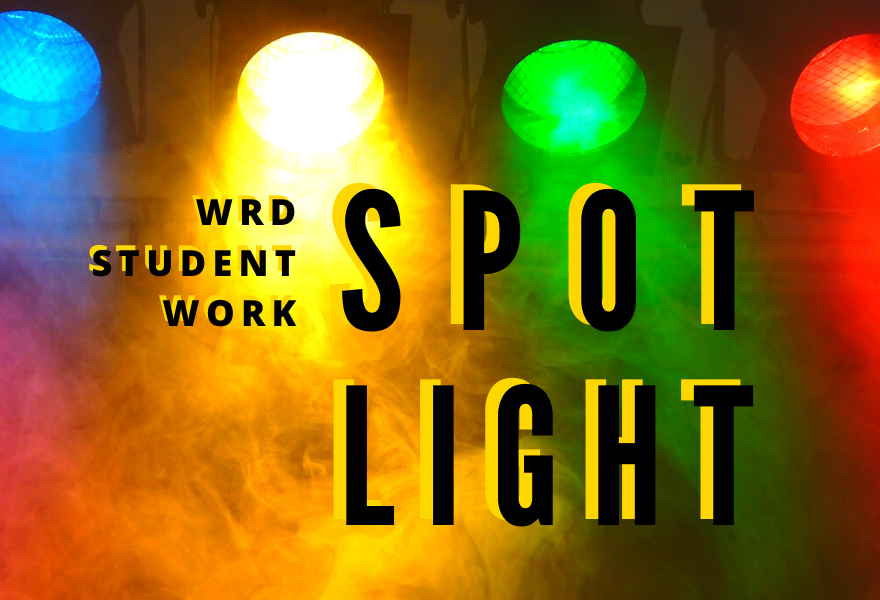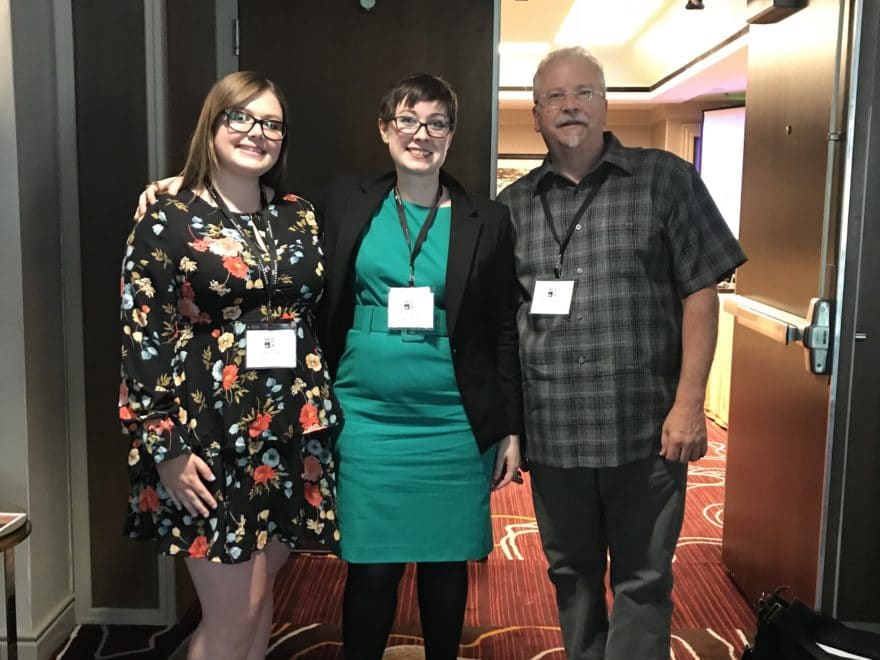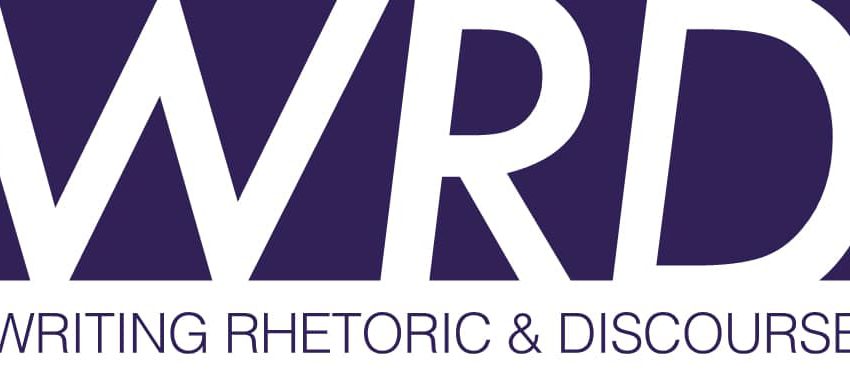On Wednesday, April 17th the WRD Department greeted Dr. Antonio Byrd, an Assistant Professor of English from the University of Missouri-Kansas City, to present “Practicing Linguistic Justice with Large Language Models.” In the hour and a half long presentation, Dr. Byrd discussed the need for a critical AI literacy that supports students who speak non-standard forms of English. With over 20 attendees in person at Arts & Letters Hall and many more attending via Zoom, the event was a success that garnered interest in the department from students, staff, and faculty alike. In the interactive presentation, Dr. Byrd began by
Continue reading